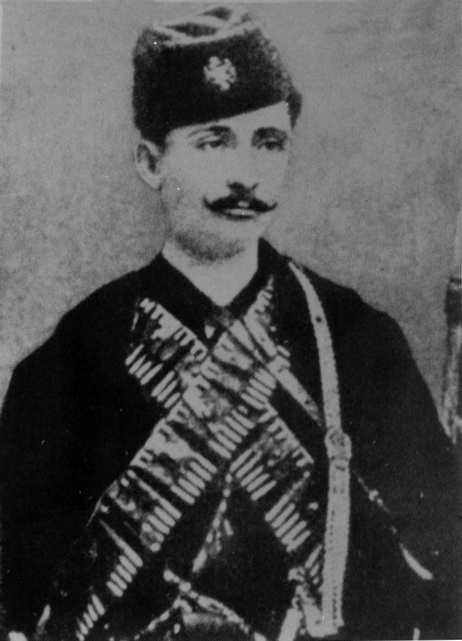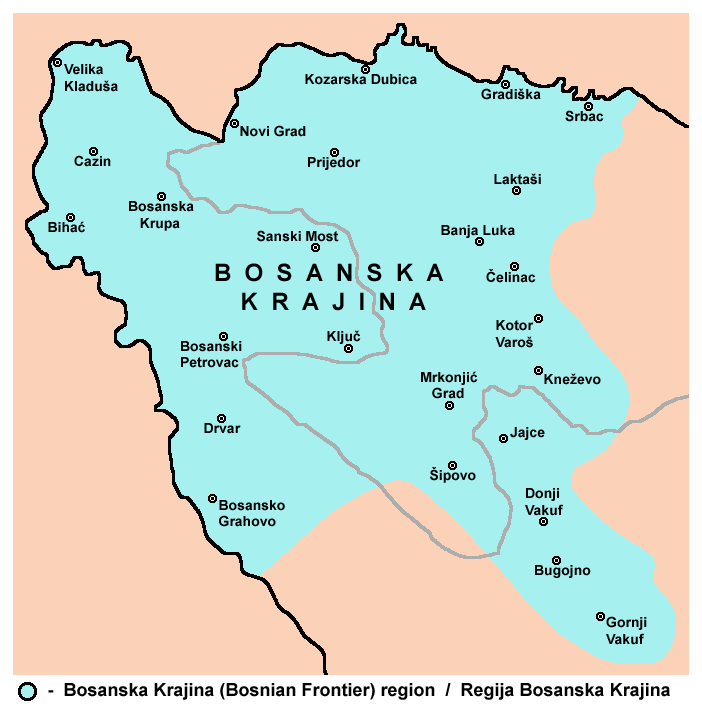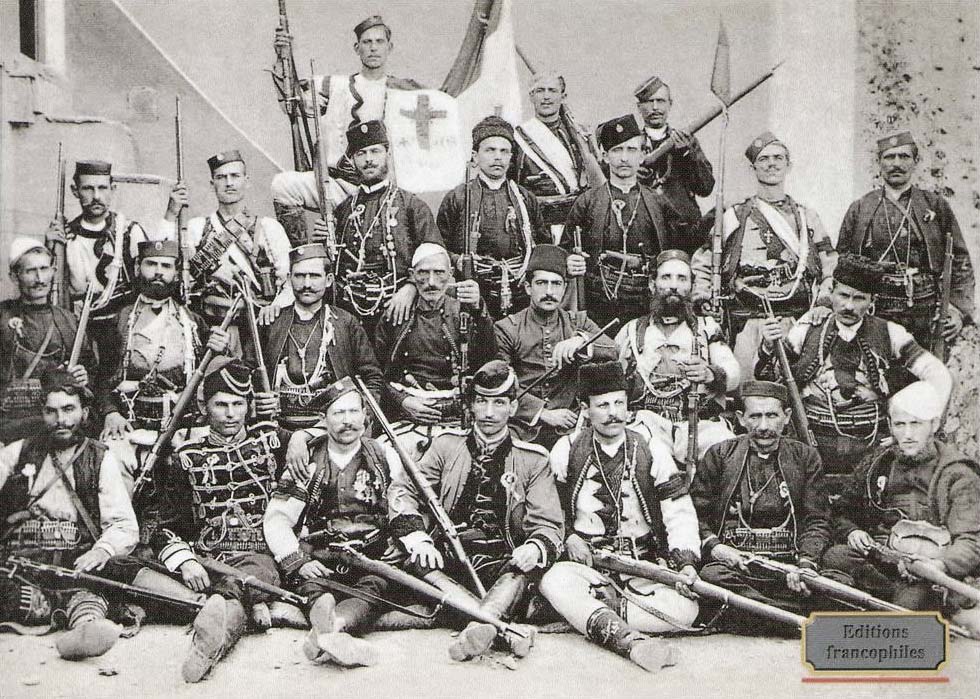|
Vojislav Tankosić
Vojislav Tankosić ( sr-cyr, Војислав Танкосић, 20 September 1880 – 2 November 1915) was a Serbian military officer, ''vojvoda'' of the Serbian Chetnik Organization, major of the Serbian Army, and member of the Black Hand, who participated in the May Coup and was accused of involvement in the Assassination of Archduke Franz Ferdinand. Overview Tankosić was born in Ruklada, in the Tamnava region near Valjevo. His family came from Bosnian Krajina. He finished Gymnasium and the prestigious Military Academy. He showed high national consciousness, and gained the trust of Milorad Gođevac and the other Chetnik leaders. Tankosić was sent as a secret agent, undercover, into Ottoman Macedonia to study the terrain and people for future action. As Dragutin Dimitrijević Apis' trustee, he executed Queen Draga's two brothers, in 1903, in the May Coup, which saw the murder (and overthrowing) of King Alexander Obrenović. He participated in the Battle of Čelopek (Ap ... [...More Info...] [...Related Items...] OR: [Wikipedia] [Google] [Baidu] |
Ruklada
Ruklada is a village in the municipality of Ub, Serbia. According to the 2011 census, the village has a population of 317 people.Popis stanovništva, domaćinstava i Stanova 2002. Knjiga 1: Nacionalna ili etnička pripadnost po naseljima. Republika Srbija, Republički zavod za statistiku Beograd 2003. It was the birthplace of Vojislav Tankosić Vojislav Tankosić ( sr-cyr, Војислав Танкосић, 20 September 1880 – 2 November 1915) was a Serbian military officer, ''vojvoda'' of the Serbian Chetnik Organization, major of the Serbian Army, and member of the Black Hand, who p .... References Populated places in Kolubara District {{KolubaraRS-geo-stub ... [...More Info...] [...Related Items...] OR: [Wikipedia] [Google] [Baidu] |
Bosanska Krajina
Bosanska Krajina ( sr-cyrl, Босанска Крајина, ) is a geographical region, a subregion of Bosnia, in western Bosnia and Herzegovina. It is enclosed by a number of rivers, namely the Sava (north), Glina (northwest), Vrbanja and Vrbas (east and southeast, respectively). The region is also a historic, economic and cultural entity of Bosnia and Herzegovina, famous for its natural beauties and wildlife diversity. The largest city, and its historical center is Banja Luka. Other cities and towns include Bihać, Bosanska Krupa, Bosanski Petrovac, Bosansko Grahovo, Bužim, Cazin, Drvar, Gradiška, Ključ, Kostajnica, Kozarska Dubica, Laktaši, Mrkonjić Grad, Novi Grad, Prijedor, Sanski Most, Šipovo, Velika Kladuša. Bosanska Krajina is not a formal entity within the structure of Bosnia and Herzegovina; however it has a significant cultural and historical identity that was formed through several historic and economic events. The territory of Bosanska Kra ... [...More Info...] [...Related Items...] OR: [Wikipedia] [Google] [Baidu] |
Veliki Popović
Veliki Popović is a village situated in Despotovac municipality in Serbia Serbia (, ; Serbian: , , ), officially the Republic of Serbia (Serbian: , , ), is a landlocked country in Southeastern and Central Europe, situated at the crossroads of the Pannonian Basin and the Balkans. It shares land borders with Hung .... Populated places in Pomoravlje District {{PomoravljeRS-geo-stub ... [...More Info...] [...Related Items...] OR: [Wikipedia] [Google] [Baidu] |
Battle Of Drina
The Battle of the Drina (Serbian: , ) was fought between Serbian and Austro-Hungarian armies in September 1914, near Loznica, Serbia, during the First Serbian campaign of World War I. After a first failed invasion of Serbia where he lost 40,000 men, Oskar Potiorek, the Austro-Hungarian commander of the Balkanstreitkräfte, launched a new offensive across the River Drina at the western Serbian border; after successfully crossing the river the night of 7—8 September the Austro-Hungarian forces were stopped facing strong Serbian defensive positions. In the meantime the Serbian Army was forced to end their offensive into Austrian Syrmia and regroup their forces to face the new threat, while in the far west a smaller force of Serbian and Montenegrin troops moved into Bosnia taking Višegrad. In the South the Austrians took Shabatz (Šabac). On 17 September a counter-attack pushed the Austrians back to the Drina where both sides settled into trench warfare. The Battle of the ... [...More Info...] [...Related Items...] OR: [Wikipedia] [Google] [Baidu] |
Jovan Babunski
Jovan Stojković ( sr-cyr, Јован Стојковић; 25 December 1878 – 17 February 1920), known as Jovan Babunski (Јован Бабунски), was a Serbian Chetnik commander ( sr, vojvoda, војвода) during the Macedonian Struggle, Balkan Wars and World War I. Following the murder of his brother and nephew by the Internal Macedonian Revolutionary Organization (IMRO), he joined a Chetnik band and took command of Chetnik units on the Vardar River, where he and his men often engaged Bulgarian and Ottoman forces. With the outbreak of the First Balkan War he joined the Serbian Army and was wounded while fighting in the village of Strevica. During the Second Balkan War, he joined a Serbian volunteer detachment and fought at the Battle of Bregalnica. During World War I, Babunski and his Chetnik detachment fought Austro-Hungarian forces in the summer of 1914 and later fought on the Salonika front, where Babunski was ordained by French General Louis Franchet d'Espèr ... [...More Info...] [...Related Items...] OR: [Wikipedia] [Google] [Baidu] |
Gavrilo Princip
Gavrilo Princip ( sr-Cyrl, Гаврило Принцип, ; 25 July 189428 April 1918) was a Bosnian Serb student who assassinated Archduke Franz Ferdinand of Austria and his wife Sophie, Duchess of Hohenberg, in Sarajevo on 28 June 1914. Princip was born in western Bosnia to a poor Serb family. At the age of 13, he was sent to Sarajevo, the capital of Austrian-occupied Bosnia, to study at the Merchants’ School before transferring to the gymnasium where he became politically aware. In 1911, he joined Young Bosnia, a secret local society aiming to free Bosnia from Austrian rule and achieve the unification of the South Slavs. After attending anti-Austrian demonstrations in Sarajevo, he was expelled from school and walked to Belgrade, Serbia to continue his education. During the First Balkan War, Princip traveled to Southern Serbia to volunteer with the Serbian army's irregular forces fighting against the Ottoman Empire but was rejected for being too small and weak. In 1913, ... [...More Info...] [...Related Items...] OR: [Wikipedia] [Google] [Baidu] |
Young Bosnia
Young Bosnia ( sh-Latn-Cyrl, separator=" / ", Mlada Bosna, Млада Босна) was a separatist and revolutionary movement active in the Condominium of Bosnia and Herzegovina, Austria-Hungary before World War I. Its members were predominantly young male students, primarily Bosnian Serbs, but it also included Bosnian Muslims and Croats. There were two key ideologies promoted amongst the members of the group—the Yugoslavist (unification into a Yugoslavia) and the Pan-Serb (unification into Serbia). Philosophically, Young Bosnia was inspired by a variety of ideas, movements, and events, such as German romanticism, anarchism, Russian revolutionary socialism, Fyodor Dostoevsky, Friedrich Nietzsche, and the Battle of Kosovo. Background The rise to power of the popular Karađorđević dynasty in Serbia in the 1900s after the May Overthrow of the Obrenović dynasty by the Serbian Army in 1903, stimulated support by both Serbs and South Slavs for their unification into a state l ... [...More Info...] [...Related Items...] OR: [Wikipedia] [Google] [Baidu] |
Savatije Milošević
Savatije Milošević ( sr-cyr, Саватије Милошевић; 1876 – 1905), known as Vojvoda Savatije, was a Serbian hajduk and Chetnik commander. Life Early life Savatije Miličević Milošević (Саватије Миличевић Милошевић) was born in Pavlica, Raška, at the time part of the Ottoman Empire (today Serbia). At the age of 25, Milošević murdered Pavle Jasnić, a chief of a ''srez'' (municipality) in Raška, because of a blood feud, and joined the hajduks (brigands) with whom he was active in the Ottoman Empire. He found refuge in Peć, Kosovo Vilayet, at the house of Albanian kachak Mula Zeka. When the authority started searching for him, he fled to the Principality of Montenegro where he befriended the Serbian emigreés Ranko Tajsić and ''prota'' Milan Đurić. Chetnik Organization He participated in the famous battle at Čelopek (April 1905). Together with Lazar Kujundžić and Živojin Milovanović he turned and went for Poreče, throug ... [...More Info...] [...Related Items...] OR: [Wikipedia] [Google] [Baidu] |
Battle Of Čelopek
The Battle of Čelopek ( sr, Borba na Čelopeku, italics=yes, sr-Cyrl, Борба на Челопеку) was fought at the Čelopek plateau, near Kozjak, between the Serbian Chetnik Organization and Ottoman officers accompanied by Ottoman Albanian bashi-bozuks, on 16 April 1905. Background After the fights in Tabanovce, Savatije Milošević, Lazar Kujundžić and Aksentije Bacetović-Baceta left their offices as organizers of the action, wanting to feel the Chetnik lifestyle "from within" as voivodes. Baceta was to replace the then Chief of Upper Staff, Ilija Jovanović. Baceta and Savatije Milošević, by mid-April, had moved 107 fighters across the border. Fight At dawn on Holy Saturday (), the two large bands ( Cheta) -- Belgrade and Kragujevac -- arrived at the village of Dubočica. There, they were awaited by the bands of Ilija Jovanović, Lazar Kujundžić, Čiča-Pavle Mladenović and Ljubomir Jezdić. The Kragujevac Band was led by captain (''kapetan'') Borko Paš ... [...More Info...] [...Related Items...] OR: [Wikipedia] [Google] [Baidu] |
Alexander Obrenović
Alexander I ( sr-cyr, Александар Обреновић, Aleksandar Obrenović; 14 August 187611 June 1903) reigned as the king of Serbia from 1889 to 1903 when he and his wife, Draga Mašin, were May Coup (Serbia), assassinated by a group of Royal Serbian Army officers, led by Captain Dragutin Dimitrijević. Accession Alexander was born on 14 August 1876 to King Milan I of Serbia, Milan and Queen Natalie of Serbia. He belonged to the Obrenović dynasty. In 1889, King Milan unexpectedly abdicated and withdrew to private life, proclaiming Alexander king of Serbia under a regency until he should attain his majority at eighteen years of age. His mother became his regent. His parents were second cousins. In 1893, King Alexander, aged sixteen, arbitrarily proclaimed himself of full age, dismissed the regents and their government, and took the royal authority into his own hands. His action won popular support, as did his appointment of a radical ministry. In May 1894 King Alex ... [...More Info...] [...Related Items...] OR: [Wikipedia] [Google] [Baidu] |
Queen Draga
Queen or QUEEN may refer to: Monarchy * Queen regnant, a female monarch of a Kingdom ** List of queens regnant * Queen consort, the wife of a reigning king * Queen dowager, the widow of a king * Queen mother, a queen dowager who is the mother of a reigning monarch Arts and entertainment Fictional characters * Queen (Marvel Comics), Adrianna "Ana" Soria * Evil Queen, from ''Snow White'' * Red Queen (''Through the Looking-Glass'') * Queen of Hearts (''Alice's Adventures in Wonderland'') Gaming * Queen (chess), a chess piece * Queen (playing card), a playing card with a picture of a woman on it * Queen (carrom), a piece in carrom Music * Queen (band), a British rock band ** ''Queen'' (Queen album), 1973 * ''Queen'' (Kaya album), 2011 * ''Queen'' (Nicki Minaj album), 2018 * ''Queen'' (Ten Walls album), 2017 * "Queen", a song by Estelle from the 2018 album ''Lovers Rock'' * "Queen", a song by G Flip featuring Mxmtoon, 2020 * "Queen", a song by Jessie J from the 2018 al ... [...More Info...] [...Related Items...] OR: [Wikipedia] [Google] [Baidu] |
Dragutin Dimitrijević
Dragutin Dimitrijević ( sr-Cyrl, Драгутин Димитријевић; 17 August 1876 – 24 June 1917), better known by his nickname Apis, was a Serbian army officer and chief of the military intelligence section of the general staff in 1913. He is best known as the most prominent member of the Black Hand, a secret military society that organised the 1903 overthrow of the Serbian government and the assassination of King Alexander I of Serbia and Queen Draga. Some scholars believe that he also initiated the plot to kill the Archduke Franz Ferdinand in June 1914, which led to the July Crisis and the outbreak of World War I. In 1916, the government in exile of Serbian Prime Minister Nikola Pašić, who considered Dimitrijević a threat, filed charges of high treason against the leadership of Unification or Death. Dimitrijević was tried at Salonika before a court martial arraigned by his opponents within the Serbian government. He was found guilty of conspiring to assass ... [...More Info...] [...Related Items...] OR: [Wikipedia] [Google] [Baidu] |


.jpg)



